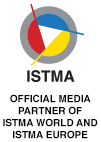Realising the smart factory with a flexible manufacturing concept
18.06.2021
Productivity in metal cutting has constantly been increasing over the past decades — not least because of automation solutions that resulted in today's smart factory concepts. With their “Flexible Manufacturing Concept”, Erowa has been leading the way in this field since more than three decades.
 The production cell is automated according to the customer's requirements. (Source: Erowa)
The production cell is automated according to the customer's requirements. (Source: Erowa)
The smart factory is not an invention of our time. But the information processing components that are available today point the way to solutions which our forefathers could only dream of. Erowa has been working with the Flexible Manufacturing Concept (FMC) for more than 30 years. This is a mode of production in which it is clear at any given time where the workpieces are in the production process. It reduces downtimes, improves production quality and maintains flexibility despite automation.
The term “production process” means something different to everyone involved in it, depending on their functions. Procurement is about the availability of raw materials, production planning grapples with deadlines and disposable production times, machine operators are concerned with NC programs, tools in the exchanger, measurement checks, completion deadlines and quality assurance. The interaction of the Erowa FMC and its many components ensures that all the necessary information about these requirements is permanently available.
 The OEE Dashboard shows the status of efficiency for all the production cells or individually right down to the last detail for every single machine.
The OEE Dashboard shows the status of efficiency for all the production cells or individually right down to the last detail for every single machine.
(Source: Erowa)
A production company wanted to have its production milling machine loaded automatically. The objective is the production of small batch sizes or even one-off parts in unmanned operation. If this proves successful, a second machine is intended to be integrated into this process. The basic preconditions are established with an Erowa robot that has been selected accordingly. Due to the many available options, it is possible to create a production cell that satisfies all initial requirements. A possible further extension is taken into consideration as early as the first project stage. In this way, existing investments will continue to be used, and further investment costs will be manageable.
Information will be generated in great quantities in a production process, starting with the CAD data, which may even be made available by a customer, to the CAM programs, which are calculated for defined machines. Added to this, there are deadlines, quality measurements and evaluations, tool data, process times, individual working steps, feedback into the ERP system, and much, much more.
On the basis of the FMC philosophy, this and further information is collected and displayed in an easy-to-view manner, for which the JMS 4.0 software is responsible. This part of the FMC system products is also configured according to initial requirements and extended if plant requirements increase.
According to Erowa, customers often overestimated how much productive time can be achieved on a machine without automatic loading and unloading. In manned one-shift operation with the full FMC technology, approx. 6000 production hours can be realized per machine and year. The closer the cooperation between the machine producer and Erowa, the faster and more smoothly this demand goal can be attained in everyday production. The “users” of the FMC receive a “smart” plant for their production process that is perfectly easy to operate.
Editor: MA Alexander Stark
Source: www.etmm-online.com


































